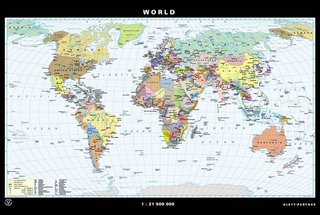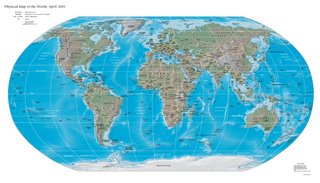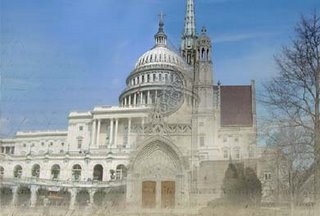
Dedicated to one that I love[1]
Did you know they now make green softballs, kind of like the fluorescent tennis balls that have been out for decades? I found one in Woodland Park’s now fast-growing grass[2] while I was chatting with a friend—I on my daily walk, she reading beneath the tall oak’s verdant canopy.
Like most all macho men with a ball in hand during a bright spring day and in the presence of a fetching young lass[3] I just had to flaunt an athletic feat, so I feigned a high school nickname which never existed—“they used to call me ‘Dead-eye Dick’”—as an excuse to throw it at a tree way, way in the distance[4] and thus make her heart flutter with admiration.
My aim was true so as I continued my walk I followed my schoolboy bravado by tossing the ball up and catching it, to show my fine female friend just how athletic I truly am.[5] Up it would soar, then predictably down. On the next toss this yellowish green earthly ball peaked next to the blazingly white heavenly one, before bowing once more to the laws of gravity into my outstretched hands.
This law of physics had me musing about Sir Isaac Newton and Albert Einstein and that it is through their supreme powers of observation that we know what we do about the truths of the world wherein we live. HAH! This juxtaposed coincidence of Heaven[6] and science struck me like a 100 mph fastball, and with it a realization that it must contain some higher truth.
The laws of nature are the laws of God, and as Einstein said, we can only know God through what we can observe in the world around us: “My religion consists of a humble admiration of the illimitable superior spirit who reveals himself in the slight details we are able to perceive with our frail and feeble mind.” Contrary to popular thought, Einstein was a big believer in God, not a narrow religious “God” but a Universal “all that there is” God.
Newton had a similar outlook: “This most beautiful system [The Universe] could only proceed from the dominion of an intelligent and powerful Being…In the absence of any other proof, the thumb alone would convince me of God's existence.”
So it is that the Earth’s two greatest scientists believed in a superior spirit, an Almighty, a Universal force, a God—just not THE God, that is, they did not believe in the God of Christians or Jews, or Muslims or Hindus. Nor even the non-existent God of the atheists. Rather, their acknowledgement is to a Power, largely unknowable except as to the “slight details.”
Of course, to think of the Theory of Relativity as a mere “detail” is mind-boggling, yet it does put in perspective just how much we DON’T know, yet is real, just not yet “discovered.”[7] Likewise, the opposite: how much we THINK is real, yet may be only illusion, namely what ingrained “truths”—in religion generally and Christianity specifically—are instead more a product of the tradition of man, than Universal Truth?
Yes, as I escape the binding straightjacket-hold of conventional Christianity, I find that it is the over-riding truth of Einstein’s God that has so far ripped me from the death-hold clutch of the traditions of man. Yet still I follow the teachings of Jesus, as those teachings embody and strengthen Universal Law.[8]
After all, what is making disciples of other nations if not living by example Jesus’ life teachings? It certainly can not be the mere cannibalistic drinking of his blood and eating of his body without the works that are consistent with his teachings: the stronger taking care of the weaker, the looking beyond pure self-interest to being other-oriented, the making, standing and if need be non-resistant dying for peace, the loving of all, including supposed enemies.[9]
One need not be a Christian, an acknowledger of Jesus--or any “religious” figure--to so order their life, and would nonetheless be following a path that maximizes the good, the truth, that is Universal Law.
But what of the Resurrection of the sacrificial Lamb of God who died for the sins of the world, so that all that believe in Jesus—and ONLY Jesus--have everlasting life?
Used to be, when I was immersed in the confines of traditional Church dogma that my whole belief system hinged on Jesus’ resurrection. If there was any chance that he did not rise from his death, then it ALL was for naught—there was no heaven, his life teachings void.
This was a true house-of-cards that caused me much, much angst in my youth, for though I did not at that time realize it I know that God was revealing to me a much larger truth. This youth-born seed has been growing into a study—which may become a book—that will free the hope of eternity from such tight constraints.
I see it as an application of Einstein’s search for truth in our sun-drenched physical world, to that beyond time and space.
And so it is seems that all the truth that could set us free is embodied as much in the Sun of God as the Son of God.
[1] Love. Both the highest human attainment, and at times just a four-letter word. There are many kinds of love. First, there is emotional love, which we easily experience, but often confuse with mere self-oriented pleasure. Within the emotional love category there is both CONDITIONAL love and UNCONDITIONAL love. Unconditional love is rare, and usually only by a parent for a child, and a pet for its owner. Even in marriage, one’s emotional love will be conditioned on loyalty and some measure of reciprocity from the other. Thus most emotional love is CONDITIONAL.
Second, there is AGAPE love, which is the love Jesus taught, where we love all--stranger, neighbor even enemy, and is nothing more than good intentions and actions given freely and indiscriminately to all. Agape love will often lack any warm fuzzy emotional component at all, such as when we do good to those that harm us. We need not like them to love them.
My love for the one to whom this is dedicated is both conditionally emotional and agape. Even though she does not reciprocate the affinity I have for her, still do I feel. And that is okay—sometimes the best love is one that is not ruined by its return!
Of course, my feelings are conditioned on her being the person I have known her to be—kind, considerate and non-malicious. Yet if that turned out to be the case, I would show (I hope!) the agape love that just lets it be.
[2] Early spring grass grows so fast and full it is reminiscent of the bushy, bushy big hair of high school girls.
[3]She was coincidentally near the gardenias and geraniums which are just now spewing forth their alluring fragrances.
[4] Typical exaggerated fish story. In fact the tree was just about 15’ away.
[5] I could hear Casey Stengel saying “you still got it, kid”, which is funny because I never had it to begin with!
[6] “Heaven” is both a subjective religious concept as well as an objective scientific reference to the universe beyond our atmosphere, such as “the heavens.”
[7] For instance, new species of animals and plants were recently discovered in the Foja mountain range of Papua New Guinea. http://news.bbc.co.uk/1/hi/sci/tech/4688000.stm. And in the arctic, fossils of a fish with leg-like fins, offering evidence of the evolvement of finned fish to land lubbing tetrapods. http://www.newscientist.com/article/mg19025464.600-first-fossil-of-fish-that-crawled-onto-land-discovered.html. The truth of these discoveries long, long pre-dated our recent realization of them.
However, we can use this same observation in matters of faith: just because there is no scientific proof of spiritual “heaven,” for instance, does not negate its possibility, much less its reality for those who believe. In fact, the essence OF faith is the belief in that which is not seen.
[8] The Golden Rule, for example, was postulated first by Confucius 500 years before Jesus. Yet it’s a cinch some obscure Chinaman/woman said it, indeed it is a Universal Truth that only awaited a human discoverer.
[9] See footnote 1 regarding the difference between emotional love and agape love.
MORE EINSTEIN QUOTES:
These thoughts did not come in any verbal formulation. I rarely think in words at all. A thought comes, and I may try to express it in words afterward.Quoted in H Eves Mathematical Circles Adieu (Boston 1977).
A human being is a part of the whole, called by us "Universe," a part limited in time and space. He experiences himself, his thoughts and feelings as something separated from the rest kind of optical delusion of his consciousness. This delusion is a kind of prison for us, restricting us to our personal desires and to affection for a few persons nearest to us. Our task must be to free ourselves from this prison by widening our circle of compassion to embrace all living creatures and the whole of nature in its beauty. Nobody is able to achieve this completely, but the striving for such achievement is in itself a part of the liberation and a foundation for inner security.Quoted in H Eves Mathematical Circles Adieu (Boston 1977).
The world needs heroes and it's better they be harmless men like me than villains like Hitler. Quoted in H Eves Return to Mathematical Circles (Boston 1988).
If my theory of relativity is proven successful, Germany will claim me as a German and France will declare that I am a citizen of the world. Should my theory prove untrue, France will say that I am a German and Germany will declare that I am a Jew.Address at the Sorbonne, Paris.
MORE NEWTON QUOTES:
Numero pondere et mensura Deus omnia condidit God created everything by number, weight and measure.
Truth is ever to be found in the simplicity, and not in the multiplicity and confusion of things.







